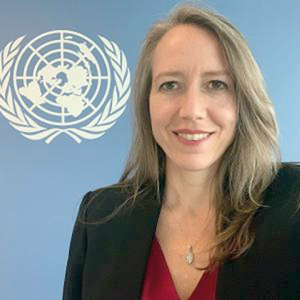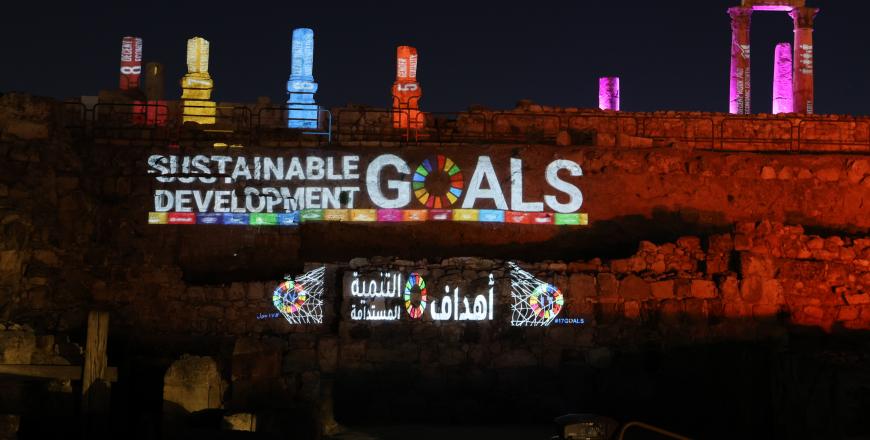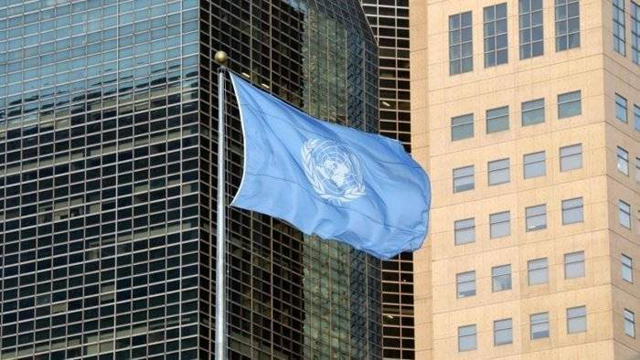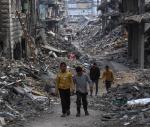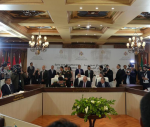You are here
Jordan makes significant strides towards SDG commitments — UN Resident Coordinator
By JT - Sep 16,2023 - Last updated at Sep 16,2023
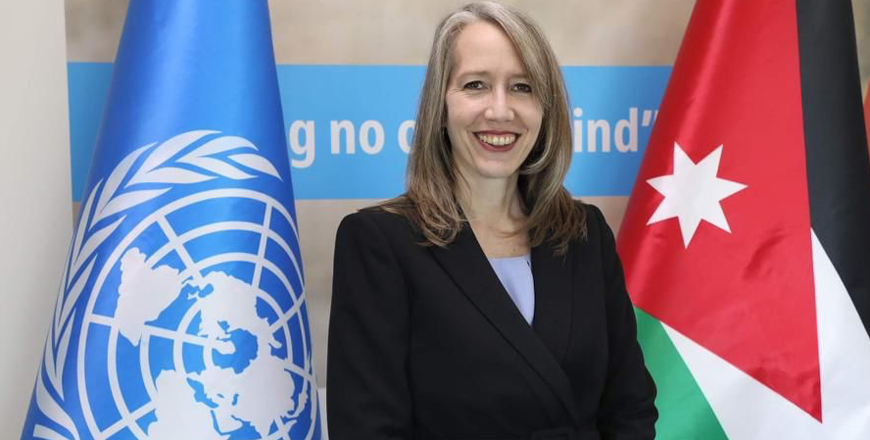
Sheri Ritsema-Anderson (Photo by Osama Aqarbeh)
AMMAN — Jordan has made real progress in realising its Sustainable Development Goal (SDG) commitments, particularly in terms of combating hunger, and in the fields of education, water and sanitation and innovation, according to UN Resident Coordinator in Jordan Sheri Ritsema-Anderson.
Ritsema-Anderson sat down with The Jordan Times in a recent exclusive interview to discuss the Kingdom’s progress at the halfway point for the 2030 SDGs, and the challenges facing the country, primarily those revolving around a decline in support for refugee programming.
Job creation and improving working conditions, commonly termed “decent work” in reports, are also top priorities that Jordan is actively working to accelerate in the path to achieving the SDGs, she said.
The path to development is global in scope, with broad themes including rescuing people, saving the planet and ensuring all are able to benefit from prosperity, all of which put pressure on governments, she said.
However, Ritsema-Anderson noted, the decline in refugee support has put pressure on Jordan’s development journey. “When you host as many refugees as Jordan is hosting, that, of course, increases the pressure,” she added.
She expressed her concern about the decline in funding coming forward, noting its visible impact as shown by various UN announcements on funding shortages for refugee support.
“The great thing is that the Kingdom still retains incredible hospitality and solidarity. But of course, as funding for refugees declines, it puts more pressure on the Kingdom itself,” she said, adding that the UN’s goal is to ensure that the body maintains as much support and partnership with Jordan as possible to offset additional pressures.
Despite the pressures, “the targets and priorities are there” in terms of Jordan’s SDG commitments, according to Ritsema-Anderson. “It’s not a question of revising the targets for the goals. It’s a question of how do we mobilise additional partnerships for Jordan,” in order for the country to continue along its path of achieving its commitments, she said.
The UN will go into the SDG summit in New York in September, with a message calling for increased political commitments from every nation globally in order to actually achieve the SDGs, she said, noting that countries that require additional support, such as Jordan, must benefit from increased partnership mobilisation.
“We are constantly at work to mobilise partnerships. Sometimes that’s additional funding for specific projects, to enable the governments to provide services to improve the quality of services, but a lot of times it’s also about working in partnership with the private sector, or with civil society or a range of entities,” she said.
To achieve sustainable development both in Jordan and the world more broadly is something that Ritsema-Anderson terms “a whole of humanity responsibility”.
In order to accomplish this, the UN is “constantly” fundraising, raising attention and mobilising action, working to gain funding for specific projects, enabling governments to improve the quality of public services and working in partnership with the private sector to ensure the provision of financial and technical support, she said.
It is for “Palestine refugees as much as it is for Syrian refugees”, she added.
On recent UN agency funding requirement announcements, she noted that the World Food Programme urgently needs $10 million to prevent assistance suspensions for refugees in November, and the UN Children’s Fund (UNICEF) requires $15.5 million for their most critical requirements in refugee programming through the end of this year.
Additionally, the UN is in the final confirmation stages with the government on a five-year programme with an estimated total cost of $3 billion in sweeping UN programming to help Jordan achieve sustainable development, Ritsema-Anderson said, noting that some projects under the plan are already under way. She also noted that the new country framework for Jordan is still under final negotiations, with a few technical details remaining.
“The discussions with the government have been really productive and clear around where the objectives are, where the UN will support and how we will work with the government and the people of Jordan,” she said.
Despite the funding shortage, Jordan is not alone in the fight to ensure fair conditions for refugees while continuing its pathway to development, Ritsema-Anderson believes.
In Ritsema-Anderson’s experience, “many international partners have expressed tremendous solidarity and commitment to the nation, and to the people of Jordan, to sustain what is incredibly a location of great solidarity and hospitality amid a region where there’s constant turmoil,” she said.
Turning to the UN’s role in Jordan compared to other financing entities, Ritsema-Anderson explained that the UN in Jordan predominantly takes on a threefold role of offering policy and legislation support, piloting specific development projects, and directly empowering communities to contribute to the overall picture of progress.
In terms of funding, Ritsema-Anderson maintained that on the development side, the UN has found financial commitments to be relatively stable, with minimal changes in donor support. In fact, she believes there to be an increase in cooperation in this facet of assistance.
“It’s on the humanitarian side where the funding is starting to shift,” she explained, attributing the lack to the monumental presence of global pressures affecting nations and institutions around the world.
“We are working with the partners and with the governments to identify how we can actually continue to move forward, but I think the UN enjoys quite a lot of good solidarity from all sides.”
Turning towards the lack of clarity on the exact source of the funding decline, Ritsema-Anderson said that she does not take the perspective of shifting the blame to either the UN or to donor countries. “We don’t look at that. What we look at is how do we work all together?” she said, noting that the UN has been consistently clear about the institution’s deep concern regarding funding shortfalls.
“The story of Jordan has been one of solidarity, hope and hospitality. And really, one of partnership… all of those things contribute to achieving that environment of hospitality,” she said.
The UN Resident Coordinator also mentioned that there are new, innovative funding streams which Jordan has been at the forefront of experiencing, such as new sources of funding, and the uptick in online financing.
“There’s a lot of pressures globally, and all of those pressures are building exponentially. And just simply there’s more that we have to do with less resources,” she said.
Concluding with a reiteration of the UN’s solidarity with Jordan and hopes for the Kingdom’s future, Ritsema-Anderson said: “The UN stands firm and consistent in solidarity with the country, with people, with refugees, and with the government of Jordan. We call on everyone to continue to contribute financially and otherwise to ensure that everything that we have built over the last years is sustained, and that Jordan is able to continue its path towards sustainable development, but also towards being continuing to be the country… that is a place of refuge for others who might need it.”
Related Articles
AMMAN — UN Resident Coordinator in Jordan Sheri Ritsema-Anderson on Thursday urged donors to sustain support to Jordan, enabling the Kingdom
AMMAN — The Citadel on Sunday was lit up in colours highlighting the 17 Sustainable Development Goals (SDGs) during a reception hosted by Un
AMMAN — The UN on Thursday marked the 79th anniversary of its founding, the UN Day, by highlighting its ongoing role in promoting global pea


